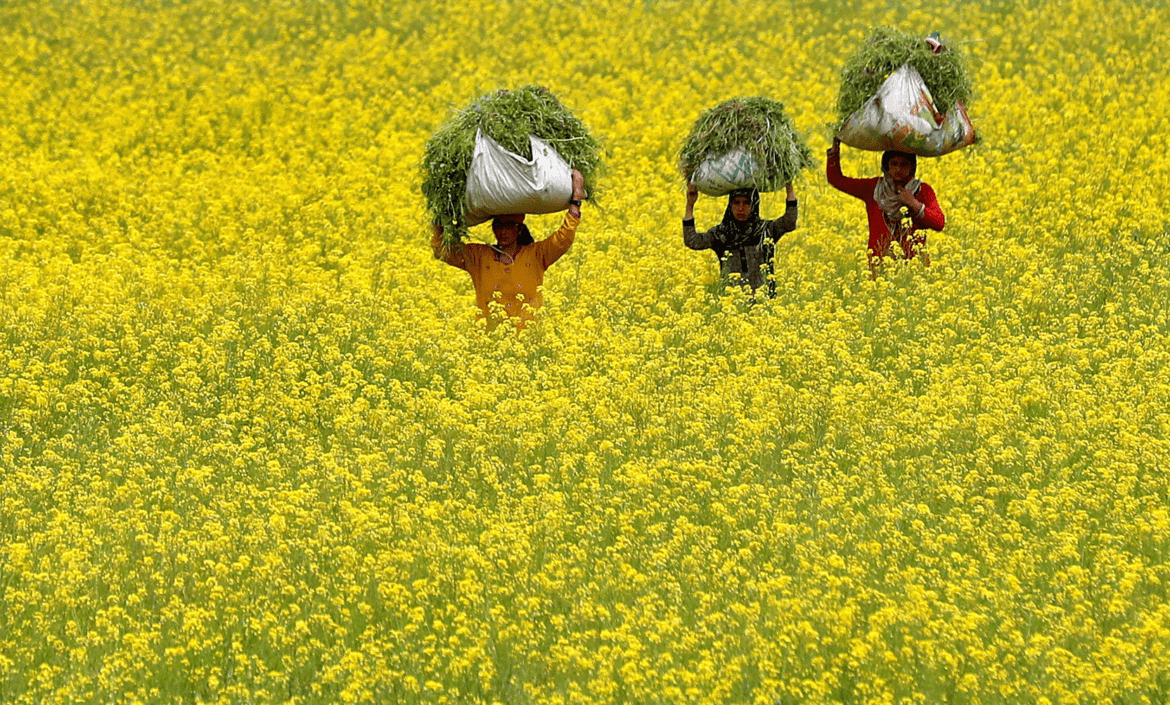AI Generated Summary
- With mustard crops flourishing and the community’s spirits high, the district looks forward to reaping the rewards of a potentially record-breaking harvest, solidifying the importance of diversifying crops for a sustainable and prosperous agricultural future.
- Jasvinder Singh Saini, Deputy Director of Agriculture in Ambala, commented on the positive weather conditions, stating, “Bumper crops are expected this year, and the farmers in the district have been increasingly showing interest in oilseed crops.
- In a promising turn of events for farmers in North India, the prevailing cold weather conditions are fueling optimism for a bumper mustard harvest this year.
In a promising turn of events for farmers in North India, the prevailing cold weather conditions are fueling optimism for a bumper mustard harvest this year. Spanning approximately 7,000 hectares of land, the oilseed crop has become a beacon of hope for agricultural prosperity.
Pradeep Chauhan, a farmer hailing from Sambhalkha village, expressed his enthusiasm, stating, “I have sown mustard in eight acres of land this year, compared to last year’s seven acres. The current weather has been exceptionally favorable for the oilseed crop, and we are anticipating a bumper yield this year.”
Chauhan elaborated on the advantages of cultivating mustard, emphasizing its superiority over wheat. “Mustard allows farmers to cultivate three crops—paddy, mustard, and sunflower—instead of the usual two crops of paddy and wheat. Furthermore, mustard requires less fertilizer and irrigation compared to wheat, making it a more lucrative option. After the mustard harvest, I plan to grow sunflower,” he added.
Sukhvinder Singh, another dedicated oilseed farmer with 24 acres of mustard fields, echoed Chauhan’s sentiments. Singh highlighted the need for timely government procurement to shield farmers from selling their produce at lower rates to private traders. He expressed optimism about a fruitful yield, though he cautioned that the favorable weather might pose challenges for vegetable and fodder crops.
For the Rabi season 2024-25, the Minimum Support Price for mustard stands at Rs 5,650 per quintal. Jasvinder Singh Saini, Deputy Director of Agriculture in Ambala, commented on the positive weather conditions, stating, “Bumper crops are expected this year, and the farmers in the district have been increasingly showing interest in oilseed crops. The area under mustard is anticipated to further expand in the coming years.”
As mustard fields thrive, concerns about potential frost damage loom over vegetable crops. The horticulture department is urging vegetable farmers to utilize low tunnels as a protective measure. Virender Poonia, District Horticulture Officer, reassured farmers that while the cold weather persists, the impact on vegetable crops is expected to be minimal. Poonia also highlighted the government’s provision of subsidies for low tunnels, with January 15 being the deadline for registration.
With mustard crops flourishing and the community’s spirits high, the district looks forward to reaping the rewards of a potentially record-breaking harvest, solidifying the importance of diversifying crops for a sustainable and prosperous agricultural future.




